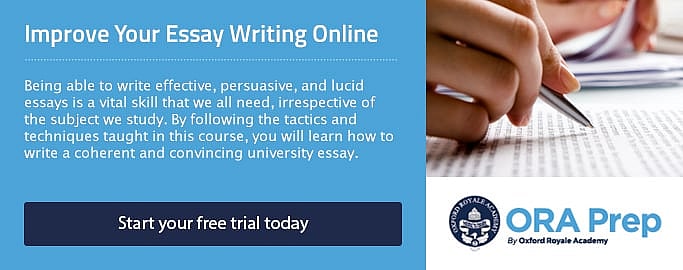Are you thinking of studying English Literature?

If you have a fascination with language or the way that the stories we tell shape our culture, ethics and values, an English degree may well be perfect for you.
Whatever people may think, it isn’t just about reading books (although that will take up a substantial part of your time). You’ll learn valuable analytical skills, engage with texts from a wide variety of times and places, and be able to perceive layers of meaning in the written word that you might previously never have guessed were there.
What kind of things can I expect to study?
English courses can vary quite widely from one university to another. More traditional courses will give weight to the established canon, and may include medieval languages such as Old English, which needs to be translated before it can be read. Newer courses will focus less on the canon and may look at areas such as popular fiction, children’s fiction or post-colonial literature.
Literary periods or genres

The bulk of the courses you take, at least in the first couple of years of your degree, will aim to introduce you to a variety of texts from a particular literary period or genre, such as Romanticism, Modernism or the development of Science Fiction. You might find courses of texts that are grouped in surprising ways, such as Dreams in Literature (which could easily span from the Old English The Dream of the Rood to Lewis Carroll), or courses that at first seem remarkably specific, such as Female Writers in the English Civil War.
Specific authors or specific texts
Another type of course is the single-author course, in which everything you read is either by a single author or that author and the works that inspired, influenced or copied them. You may also have courses that spend a term looking at a single text (though at undergraduate level, this will normally only be for huge texts like Ulysses).
Medieval languages

If you struggled to understand Chaucer at A-level, then it may surprise you to learn that his writing is considered relatively easy to understand, and most universities will expect you simply to “read” his writing, rather than “translating” it as you may have done at school. You should certainly expect to study some texts in Middle English. You may also have the opportunity to read some Old English in the original, which you will need to study as a language before you can translate any Old English texts. Some courses may offer a wider range of medieval languages even than this, including Old Norse, Gothic or medieval French. In general, medieval languages are a feature of more traditional courses, whereas less traditional courses will focus on more modern texts.
Creative writing
Creative writing is an increasingly popular subject; while it might once have been dismissed as a way for undergraduates to show off their dubious poetry, an increasing number of respectable universities now offer it as an optional course in an English degree, if not as a degree in its own right. Creative writing modules vary from those that use creative writing to help you better understand the texts you encounter (by writing in the style of a particular author, for instance) to those that use group criticism and industry knowledge to help you really hone your own creative abilities.
![Image is a link to an online essay writing course.]() What do I need for an English degree?
What do I need for an English degree?

A-level English Literature is desirable, though Language and Literature is an acceptable alternative if pure English Literature is not offered by your school. You should ideally take another essay subject (History is a popular choice, but language A-levels, Religious Studies or other essay-based subjects will do just as well) in order to get your analytical writing skills up to scratch.
You also, crucially, need a willingness to read copious amounts. You may well find that a course sets a couple of sonnets to read one week, and then Middlemarch the next; and you’ll be expected to read plenty of criticism in your own time as well. Thus, while your initial course reading list might just say ‘Northanger Abbey – Jane Austen’ (which is a relatively short novel), in order to produce a good essay on it, you might be expected to read a dozen critical analyses and a couple of Gothic novels for context.
What skills will I acquire?
You may think you already know how to read, but an English Literature degree will teach you how to read closely and analytically to a much greater extent. You will hone your own communication skills. As an English degree involves a lot of independent study but usually very few timetabled hours, you’ll learn how to keep yourself motivated and manage your time effectively. You’ll also gain research skills, particularly if you do a dissertation.
Will I get to travel as part of my degree?

While some universities may let you spend a year abroad, English is a particularly limited degree for this; your choices are the USA, Ireland or Australia, or spending a year studying English as a foreign language in a non-English-speaking country, which might not teach you very much.
What careers are possible with an English degree?
English students are asked this question more often than is comfortable, usually followed by the suggestion that all an English degree is good for is teaching. While a lot of English graduates do become English teachers, that is far from the only option available. Any job that requires an undergraduate degree will welcome applications from English graduates, with careers in advertising, marketing and journalism all being popular choices. Contrary to popular opinion, English graduates are highly employable.
Related degrees

If you’re considering English Literature, you might be interested in these other degrees:
- History – a lot of English Literature involves learning about History in order to provide context, and joint honours English and History is always a popular option too.
- English Language, Linguistics or Foreign Languages – for those who are interested more in the study of language and how it operates rather than literature specifically.
- Medieval Language and Literature – if you want a degree that combines language, history, literature and lots of stories about warriors fighting dragons, the few universities that offer degrees focusing on Medieval Language and Literature may be of interest to you.
A final thought on English Literature
English Literature can be a hugely varied field. Two English Literature graduates – even from the same university – might have specialised in very different degrees. For instance, one could have specialised in Creative Writing and Modern Drama and have graduated with an up-to-the-minute, creative-focused degree; whereas another could have studied Book History and Middle English poetry of protest and graduated with something halfway to a History degree. English Literature of whatever stripe teaches you how people use literature to convey their beliefs and ideas, and so provides an insight into human nature that is both fascinating and valuable.
Image credits: banner; science fiction; Chaucer; essay; Australia; History.

